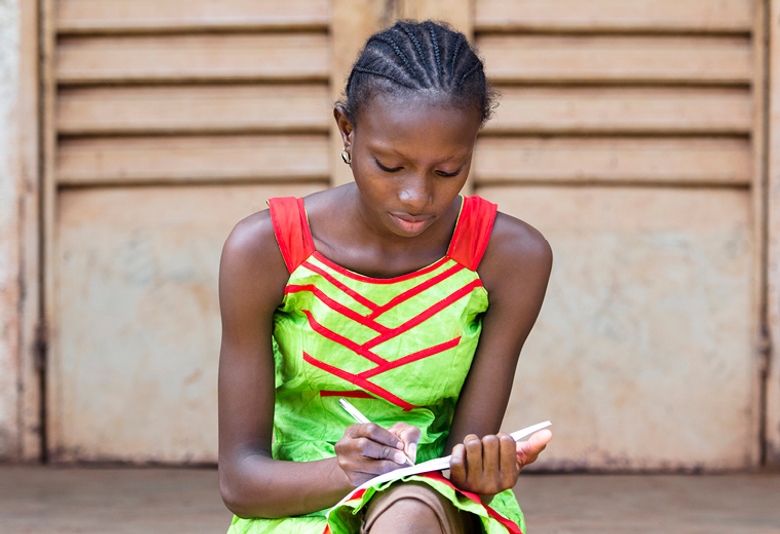“Petition To Stop The Distribution Of Contraceptives To Adolescent Girls”. This headline appeared across various Zimbabwean social media platforms when Medecins Sans Frontieres (MSF) attempted to provide contraceptives to young girls. There was plenty of activity around this. From zoom conferences to Twitter threads, people discussed how un-Zimbabwean this decision was, and the moral threat it posed.
The criticisms were many, and frankly, quite astounding. Especially because issues such as the rise in teenage pregnancy due to the pandemic didn’t raise many eyebrows.
To put it bluntly, the public uproar towards young girls’ access to contraceptive services was frustrating. But the purpose of this blog does not merely lie in expressing that frustration. I want to highlight the twisted narratives that lead to such negative reactions to contraceptive use. And I also want to stress the need for these services specifically in the context of Zimbabwe.
Young girls disproportionately account for adolescents engaging in intercourse
Before the pandemic, the state of reproductive health in Zimbabwe was dismal. Teenage pregnancy was at the staggering rate of 25% within the age group of 15-19 years old, with the number being more than double for those in rural areas. This does not come as a surprise given the fact that 38% of young girls above the age of 18 are engaging in sex, almost two years ahead of the 23% of young boys doing the same.
Girls disproportionately account for those who have sex at a young age. This is because for many, it is the only way to earn a living. Young girls have sex with older men to acquire basic amenities like sanitary products, school fees and food. Intergenerational sex has become the standard way to acquire sanitary products, funds for education and in many cases, the basic necessities for survival.
An understanding of this is crucial to realize the need for interventions such as that proposed by MSF. In an ideal world, young girls would not have to seek support from older men in order to sustain themselves, but the reality is the Zimbabwean economy has impacted the lives of its citizens in more ways than we care to admit. By denying this fact and hoping for a utopian scenario, we are denying the girls their basic human rights. We are also sending a message to these girls that their wellbeing comes second to the idealist agenda. An agenda we are not even sure we can attain in their lifetime.
Furthermore, by placing the onus on girls to stop this practice, we are solidifying the harmful rhetoric that despite women being adversely affected by poor economic conditions and general biases that go against their development, it is still their responsibility to ward off predatory men who are allowed to continue to exploit them, while reaping the few benefits that the country affords its citizens. In layman terms, the men win on all occasions, and the young girls will always lose.
Pregnancy has adverse impacts on young girls bodies
To expand further on the need for contraceptive access for adolescent girls, it is important to also note the impacts that pregnancy has on their overall development. Of the adolescent demographic who do get pregnant, ⅓ note that they wish the pregnancy occurred later. Or simply, not at all. Bearing children can have adverse effects on the health of young bodies.
Bearing children also often locks young girls into relationships that are not conducive to their growth. In many cases, men use marriage as a cover for their exploitation of women. They could do so because of the stigma around pregnancy outside marriage. If a young girl gets pregnant, the solution is simply to marry her off. This is merely one example of how the culture stands against the protection of women in Zimbabwe.
The criticism of this program and general disdain towards women’s reproductive health highlights the deeply problematic notion of purity. The society judges women for their ability to reproduce on command but also maintain proximity to virgin status. These ideas rob women of agency in their sexual encounters. And this in turn, feeds into the notion that women will always have actions done to them. And that their stories will always be secondary to the dominant narrative of the man. This in itself has an impact on the ways in which girls and women in our societies perceive themselves. And the perception of self lies at the core of any emancipatory practice.
Contraceptives serve more purposes than just birth control
But beyond the scope of teenage pregnancy, contraceptive access is a necessity as a means to limit the number of sexually transmitted infections, for everyone. It is important to note that even though intergenerational sex accounts for a large sum of the challenges faced by young girls, sex is also occurring between adolescents within the same age group, and it is important that they have access to contraceptives too.
HIV continues to haunt Zimbabwean societies due to a refusal to accept the existence of sex outside of marriage, which in turn nurtures disapproval towards contraceptive access. Intergenerational sex is on of the greatest factors. But so is the lack of access to contraceptives for the LGTBQIA+ community. And the constant push for abstinence as the only viable option. All of these factors boil down to a denial of what is happening on the ground. People are having sex; just like people were having sex before. We need to come to terms with that. Our denial is quite literally, costing lives.
Reproductive health is part of comprehensive health
Reproductive health is part and parcel of comprehensive healthcare, and every individual should be afforded this right. If we want to bring change, we have to start fighting for each other and challenge the oppressive frameworks.
Denying access to contraceptives and basic healthcare reproduce unfair systems which consider certain needs as less important. We do have a lot on our plate when it comes to change, but our efforts have to be intersectional.
We can fight for economic success alone. But many people will be unable to enjoy this because of the restrictions they face in other areas. Reproductive justice lies at the core of our communities’ emancipation and it is high time we recognize that.
To learn more about the contraceptives available to you, visit findmymethod.org to get country specific information.
Do you have something to share? Leave your comments below, contact us on our social media platforms: Facebook, Instagram, Twitter, YouTube and TikTok, send us an email to info@findmymethod.org. For more information on contraception, visit findmymethod.org
About the author: Marie-Simone Kadurira is a Reproductive Health consultant in Southern Africa. She is also the founder of Vasikana Vedu. It is a not for profit organisation which combats period poverty in the region.





